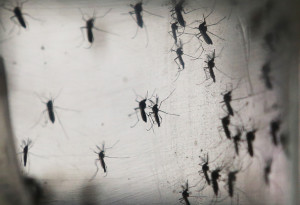
You may have all heard about the Zika virus by now! It is an infectious disease spread by a virus that is known to be carried and transmitted by mosquitoes, specifically the Aedes aegypti and Aedes albopictus species. These mosquitoes have also been implicated in the transmission of other viruses, including infections such as Yellow Fever, Dengue Fever and Chikungunya Fever.
Why all of the hype now about the infamous Zika virus?
Well, long story short – 2015 marks the first time the virus was reported in multiple cases within the Western Hemisphere (specifically, Central and South America, Mexico and the Caribbean). However, frequent travel has now also resulted in reported cases within the US. The vast majority of the cases in the U.S. are still thought to be due to travel rather than local transmission. Of course, this is subject to change, given that confirmed infected travelers are potential sources of future local viral transmission. In fact, you may have even heard of some recent reports of the Zika virus showing signs of sexual transmission, and Zika viral particles being found in urine and and saliva samples. Further studies are being done to more fully characterize the nature of possible Zika virus transmission.
Now, lets move on! Why all of the notoriety associated with the Zika virus in the last few weeks? Well, the classic viral illness is thought to be self-limited and cause a rash with fever, conjunctivitis (red, inflamed eyes) and joint pains. However, in areas of Brazil where the virus has been reported over the last few months, there has been an increase in the number of cases of congenital microcephaly (decreased head circumference at birth), which can have serious long-term implications including seizures and developmental delays. Furthermore, preliminary analysis has linked an increased risk of microcephaly with viral transmission during the first trimester of pregnancy. In-depth studies are now being conducted to fully analyze the risks of viral transmission in the later stages of pregnancy, as well as the risks of viral transmission immediately surrounding birth. Viral particles are thought to remain in the bloodstream for about a week after transmission, implying that the virus cannot be transmitted in the long term from a person with a known prior infection. Therefore, prior Zika virus infection may not imply any long term significance if a woman were to become pregnant in the future.
What should you do with all of this information?
For starters, women who are trying to get pregnant or who are pregnant, should avoid all travel to areas with known Zika virus circulation. Be sure to check available CDC and WHO resources before considering any travel to these potential areas. If such travel is imperative, alert your healthcare provider(s) immediately so that they can plan for close monitoring before your departure and after your return. They can also keep you updated on the latest recommendations as study data evolves. During your travels, be sure to protect your skin from mosquito exposure by wearing long sleeves, pants, socks and hats and by utilizing sturdy mosquito nets whenever possible. Invest in a high-grade mosquito repellent that is safe to use during pregnancy. The EPA has a wonderful online
resource that can help you find safe mosquito repellent options. Lastly, be on the lookout for cases in California and the Bay Area, as these may suggest the need to follow these preventative measures while being home.

Guest Writer, Dr. Lavanya Krishnan.
Lavanya is a board-certified dermatologist practicing in San Francisco. She and her husband, Ashwin, live in the city and have been married for 6 years. They are very excited about the impending arrival of their baby girl! Lavanya is originally from Duluth, GA and met Ashwin in college at MIT. They have had the pleasure of living in many amazing cities, including New York City and Chicago, but are now pleased to call San Francisco their home!



















Great information!
Thank you for this informative post.